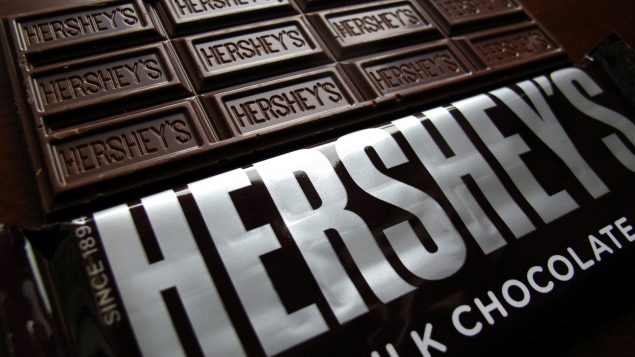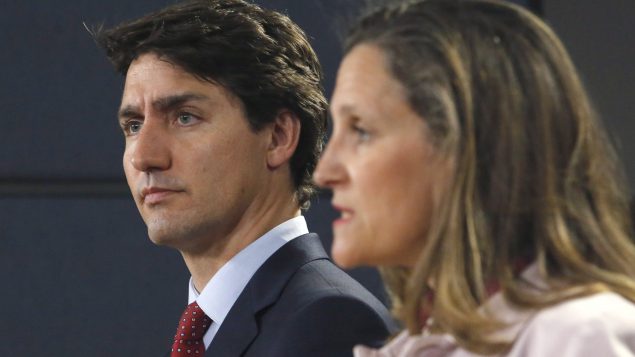After waiting for more than a month, hoping in vain that the White House will relent on its tariffs on Canadian steel and aluminum, the federal government is set to announce Canada’s final list of retaliatory measures on Friday.
Foreign Affairs Minister Chrystia Freeland, flanked by her cabinet colleagues Navdeep Bains and Patty Hajdu, will be in the Ontario steel town of Hamilton to unveil an eclectic list of American products that will be subject to retaliatory tariffs when Canadian countermeasures kick in on July 1.
Ottawa also plans to unveil a financial aid package for the steel and aluminum industries.
Canada is slapping reciprocal tariffs of 25 and 10 per cent respectively on American steel and aluminum exports but is also adding a 10-per-cent surtax on dozens of items from bourbon whiskey to household appliances and felt-tipped pens.
The eclectic mix of items is expected to add up to $16.6 billion to compensate Canada’s projected losses from U.S. tariffs but is also designed to inflict maximum political pain on the Trump administration by targeting industries in key electoral districts.
Chocolate and lawn mowers on the potential list

Hershey’s chocolate bars are on the proposed list of Canadian countermeasures. (Mike Blake/REUTERS/File Photo)
For example, chocolate is on the proposed list that was initially unveiled by Freeland on May 31. As it turns out the Republican congressman for Hershey, Pennsylvania, home of the Hershey chocolate brand, is retiring and that’s an open seat that Republicans can lose.
It’s the same story with Cub Cadet lawn mowers, which are also on the proposed list. The company is headquartered in Ohio where the Republican congressman is moving on to run for the Senate, again leaving an open seat.
- Canada hits back at U.S. steel and aluminum tariffs with $16.6B countermeasures
- Steelmakers press Ottawa to slap tariffs on U.S. steel immediately
The final list, which will be presented following extensive consultations with industry groups and consumers, is also supposed to be as painless as possible for Canadian consumers and industry.
Freeland announced on May 31 that the U.S. consumer goods were chosen because alternative products could “be easily sourced from Canadian companies or non-U.S. trade partners.”
Some items hard to replace
But the Retail Council of Canada warns that some targeted items will be hard to replace.
“If you look at things like soya sauce or maple syrup, I think it’s reasonable to suppose that there are other sources in the world that can meet Canadian demand,” said Karl Littler, the council’s vice-president of public affairs.
“But when you get into more specialized goods like washer-dryers, it turns out that substitutability is something of a mirage because there is no domestic manufacturer in Canada.”
(click to listen to the full interview with Karl Littler)
ListenGetting many of these products from big Asian manufacturers would not be feasible because Canada already levies similar tariffs on them, Littler said.
Canada’s recently signed Comprehensive Economic Trade Agreement (CETA) with the European Union could provide some relief, but not enough to substitute completely products made in the United States, he said.
“If you think about the coffee, which is one of the items on the list, obviously, there are Italian and Swiss suppliers of coffee that come quite quickly to mind, there are European-made appliances – Electrolux would be a case in point – so there are some products that are going to come from Europe,” Littler said.
Worries over shrinking Canadian wallet
If the tariff war lasts only a few weeks or a couple of months, the collateral damage from it would be quite manageable, he said.
“There is some stock on the shelves, there is some in warehouses, obviously merchants took some steps to stock up as this situation was looming,” Littler said.
However, the retail industry is concerned about the impact of the trade war beyond the retaliatory tariffs, he said.
“From a retail perspective and a consumer perspective there is the broader concern about a trade war,” Littler said.
“The issue is not only will the price go up on the shelf, but if the economy stumbles or the growth rate diminishes, then you’re also going to see a shrinking Canadian wallet, so it’s not only shelf price but also Canadians’ capacity to pay, and that’s at least as big of a concern for us.”







For reasons beyond our control, and for an undetermined period of time, our comment section is now closed. However, our social networks remain open to your contributions.